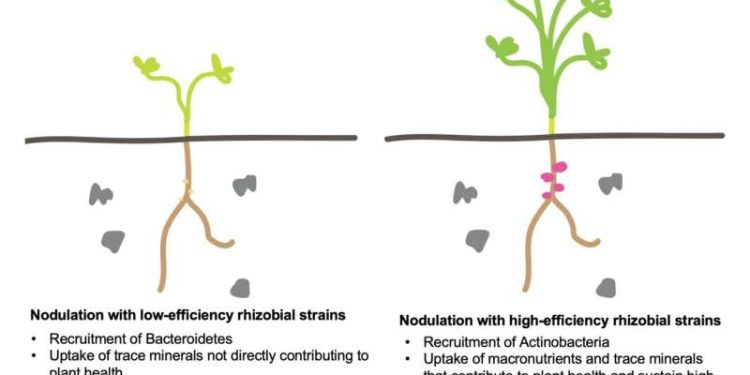This article explores the groundbreaking potential of microbial fertilizers in transforming the agricultural industry. Backed by the latest research and data, we delve into the efficacy of bacteria-based fertilizers in improving crop yield, nutrient absorption, soil health, and sustainability. Discover how this innovative approach holds promise for farmers, agronomists, agricultural engineers, farm owners, and scientists alike.
The agricultural landscape is undergoing a remarkable revolution, fueled by advancements in microbiology and the growing understanding of the intricate relationship between soil health and crop productivity. Recent studies have shed light on the potential of microbial fertilizers in boosting agricultural outcomes while reducing environmental impacts. This article aims to provide valuable insights into the power of bacteria-based fertilizers and their role in shaping the future of agriculture.
According to a study published in Nature Communications [1], researchers have successfully harnessed the symbiotic relationship between certain bacteria and plants to develop microbial fertilizers that significantly enhance crop yields. These fertilizers contain beneficial strains of bacteria that establish a mutually beneficial association with plant roots, facilitating nutrient absorption and promoting plant growth.
The benefits of microbial fertilizers extend beyond increased crop yields. These innovative fertilizers help improve soil health and sustainability. A comprehensive review published in Frontiers in Plant Science [2] emphasizes that microbial fertilizers contribute to enhanced soil fertility by replenishing essential nutrients and organic matter. Moreover, they have shown potential in reducing the need for chemical fertilizers and pesticides, thereby minimizing environmental contamination and promoting ecological balance.
Furthermore, microbial fertilizers have demonstrated efficacy in addressing specific agricultural challenges. For instance, a study conducted by the American Society of Agronomy [3] reveals that bacterial inoculants can mitigate the detrimental effects of abiotic stressors, such as drought and salinity, on crop growth. By enhancing the plant’s stress tolerance and nutrient uptake, these fertilizers offer a promising solution for farmers facing increasingly unpredictable climatic conditions.
In conclusion, the emergence of bacteria-based fertilizers presents a transformative opportunity for the agricultural industry. The utilization of beneficial bacteria to enhance crop productivity, improve soil health, and foster sustainable practices has the potential to revolutionize farming practices. By embracing this innovative approach, farmers, agronomists, agricultural engineers, farm owners, and scientists can pave the way for a more efficient, resilient, and environmentally conscious agricultural sector.
Tags: Agriculture, Microbial Fertilizers, Bacteria, Crop Yield, Soil Health, Sustainability, Agricultural Revolution, Farming Practices, Nutrient Absorption, Environmental Impact.
References:
- Research Article: Nature Communications
- Review: Frontiers in Plant Science
- Study: the American Society of Agronomy












